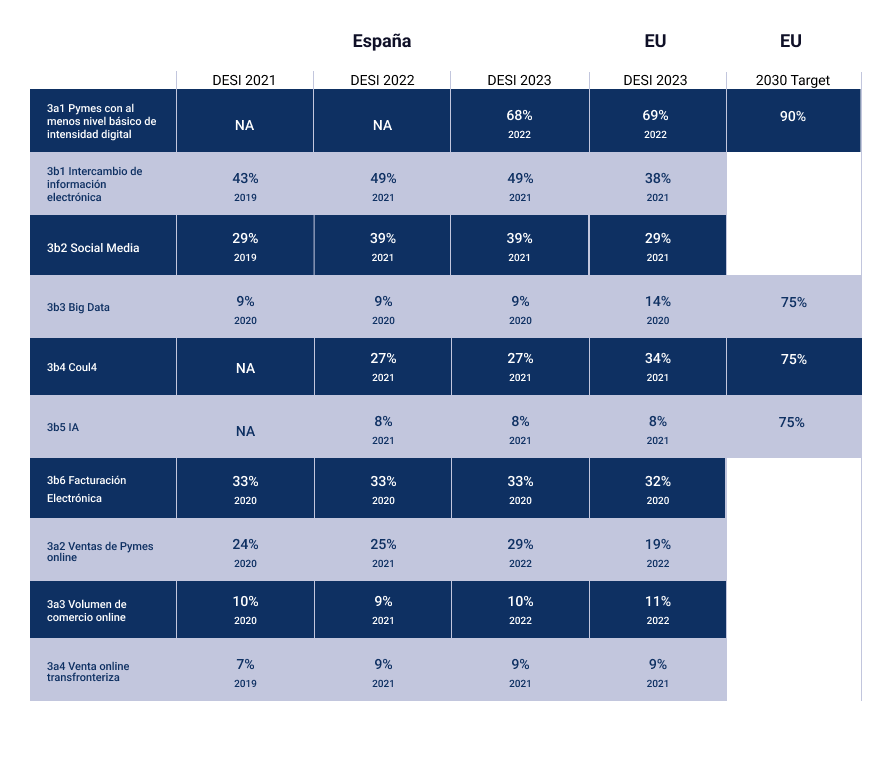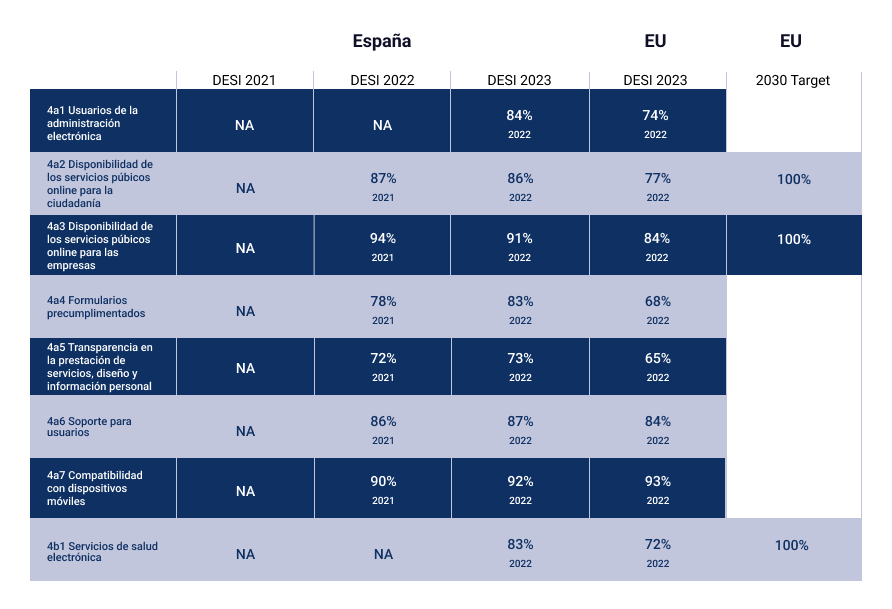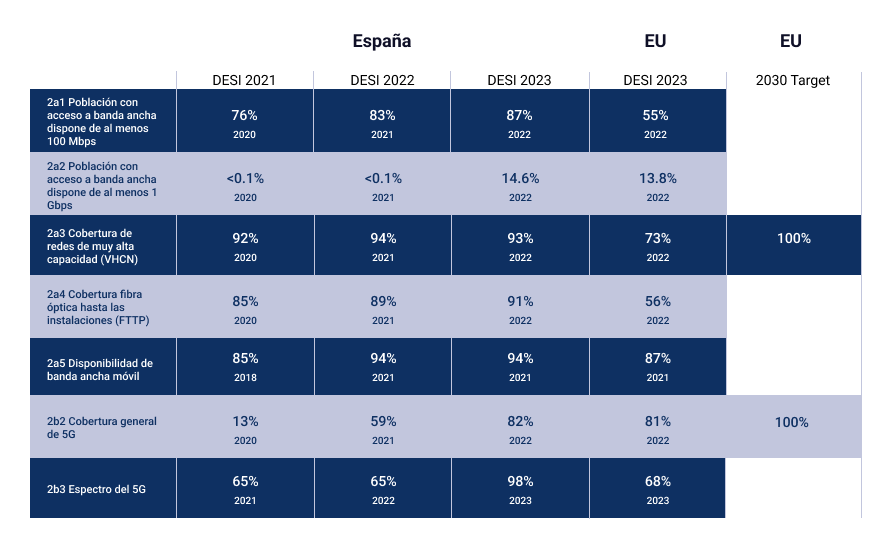Indicators
DESI
The Digital Economy and Society Index (DESI) is a composite index that summarises relevant digital performance indicators and tracks the evolution of EU Member States' digital competitiveness. Each year, DESI reports publish countries' progress results, combining quantitative data from more than 30 indicators with analysis on the policies and best practices that have been developed in each country. This helps Member States to identify areas for priority action, such as thematic chapters, which provide EU-wide analysis in the digital areas of digital transformation.
The indicators that make up the DESI are structured around 4 dimensions:
Connectivity

Human Capital
Integration of Digital Technology
Spain ranks 11th in relation to the integration of digital technologies by companies, with 38.6 points, a score very close to the EU average. Digital Spain 2026 proposes a series of ambitious measures and actions to advance in this area, including the SME Digitalization Plan 2021-2025 and the National Artificial Intelligence Strategy. The Recovery, Transformation and Resilience Plan, for its part, has prioritized measures for the digitalization of companies, especially SMEs, to which 25% of the total budget for the digital area is allocated.

Digital Public Services


